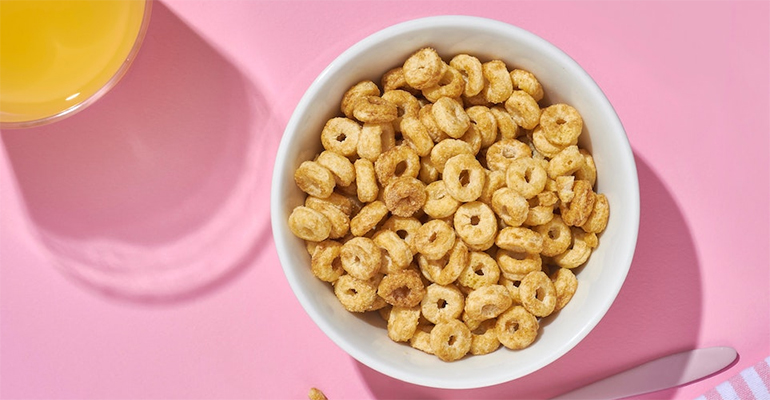News
Nestlé continues to remove sugar, salt in a “health by stealth” campaign
21 Oct 2021Nestlé’s U.K. breakfast cereal maker Cereal Partners U.K. (CPUK) said there will be 16% less sugar and 50% less salt in six of its products, Food Navigator reported. Coco Shreddies, Frosted Shreddies, Honey Cheerios, Nesquick, Cookie Crisp and Golden Nuggets will see 59 million teaspoons of sugar and 3 million teaspoons of salt removed by the end of 2021.
This latest reduction announcement is intended to improve the overall nutritional profile of Nestlé products and is part of the Swiss conglomerate’s 18-year-long reformulation strategy. In this strategy, Nestlé said it prefers to gradually reduce the amount of sugar and salt in its products at the same time that it is increasing whole grain content in order to maintain the taste of its classic products.

Although slow, the progress has been steady. In 2003, Golden Nuggets cereal had no whole grain, and now the product has whole grains as its No. 1 ingredient, Food Navigator reported.
Switching to a healthier ingredients profile has been a focus for Nestlé for many years now. In May 2015, Nestlé said it was launching a worldwide sodium reduction strategy and found that only 4% of consumers considered this change as grounds for them to be less likely to purchase Nestlé products. The majority (81%) said the change would not affect their purchases.
Despite favorable feedback on reformulation, the company is continuing its health by stealth approach in order to avoid perturbing people with sweeping changes. In an article written by Nestlé in 2015 and posted on its website, the company said “Experience has shown that a heavy hand doesn't work,” instead giving a nod to the success of consistent, incremental steps toward reformulation.
Other companies are also enacting similar initiatives to reformulate their products to make them healthier, but not all efforts have been successful. Coca-Cola tried to eliminate sugar from its Vitamin Water brand by substituting it with stevia. However, the company ended up returning to its original sugar-laden formulation when shoppers rejected the change. Failure to overhaul products to a healthier formulation is an ongoing struggle for companies despite Euromonitor finding that 47% of global consumers are seeking limited or no added sugar foods.
Clearly, although people purport to prefer healthier options, their buying habits do not always reflect this preference – especially when taste is affected. Nestlé is evidently aware of this slippery slope, so it is continuing its ‘salami slice’ approach to changes, which the company has said allows it to maintain the taste of its products.
At the same time that Nestlé is preserving taste, it is also improving its scores on front of pack labeling in the U.K. Nesquick, which is currently undergoing sugar and salt reductions, has seen its rating for salt move from an amber to a green traffic light color and the product’s sugar content is improving from a red to an amber traffic light color.
